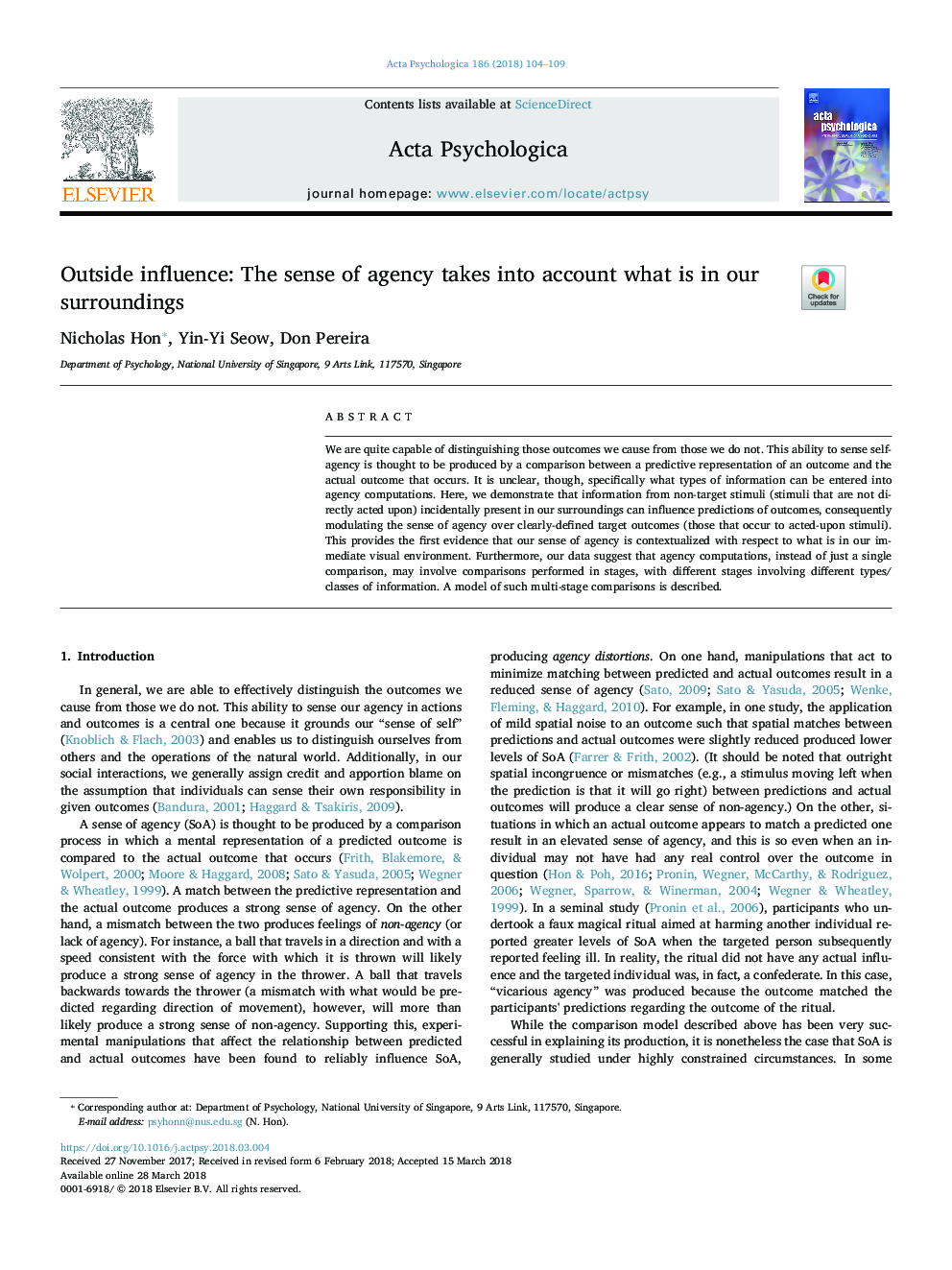| Article ID | Journal | Published Year | Pages | File Type |
|---|---|---|---|---|
| 7276716 | Acta Psychologica | 2018 | 6 Pages |
Abstract
We are quite capable of distinguishing those outcomes we cause from those we do not. This ability to sense self-agency is thought to be produced by a comparison between a predictive representation of an outcome and the actual outcome that occurs. It is unclear, though, specifically what types of information can be entered into agency computations. Here, we demonstrate that information from non-target stimuli (stimuli that are not directly acted upon) incidentally present in our surroundings can influence predictions of outcomes, consequently modulating the sense of agency over clearly-defined target outcomes (those that occur to acted-upon stimuli). This provides the first evidence that our sense of agency is contextualized with respect to what is in our immediate visual environment. Furthermore, our data suggest that agency computations, instead of just a single comparison, may involve comparisons performed in stages, with different stages involving different types/classes of information. A model of such multi-stage comparisons is described.
Related Topics
Life Sciences
Neuroscience
Cognitive Neuroscience
Authors
Nicholas Hon, Yin-Yi Seow, Don Pereira,
